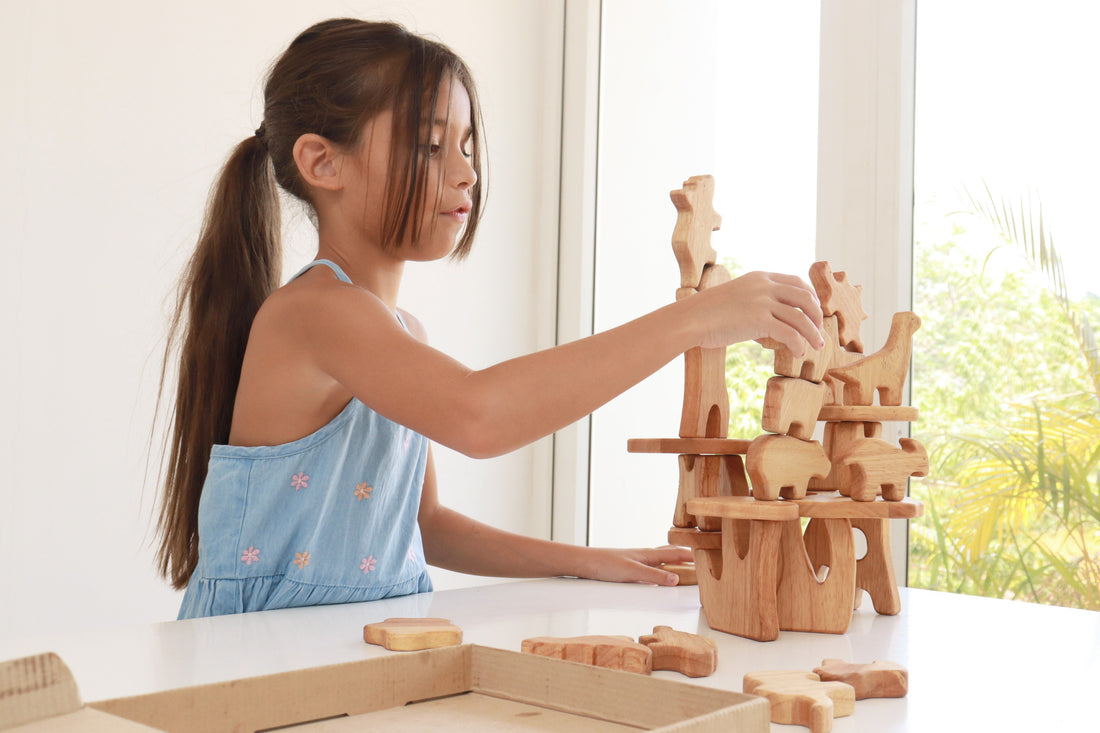Embracing the Ageless Charms
In today's digital era, children are often surrounded by screens, apps, and electronic toys. Yet, amid all this tech, wooden toys stand out as ageless classics. Not only are they sustainable and aesthetically pleasing, but they also pack a powerful educational punch.
The Foundation of Development: Cognitive and Physical Benefits
Wooden toys, unlike their electronic counterparts, are often simple in design. However, this simplicity is deceptive. First and foremost, wooden toys encourage imaginative play. For instance, wooden blocks can become skyscrapers, bridges, or castles depending on the child's fancy. Secondly, they promote hand-eye coordination. A child trying to fit a wooden piece into its correct slot in a puzzle learns spatial reasoning and fine motor skills.
Beyond the Basics: Emotional and Social Advancement
Furthermore, wooden toys can also play a significant role in emotional and social development. A child playing with wooden figurines learns storytelling, empathy, and how to navigate social scenarios. Additionally, because wooden toys aren’t typically equipped with pre-programmed responses, children often play collaboratively, fostering communication and teamwork.
Eco-Friendly and Safe: A Sustainable Choice
Another undeniable advantage is their eco-friendliness. Unlike plastic toys, wooden toys are biodegradable. Thus, when they've outlived their use, they return to the earth without leaving a lasting footprint. Moreover, with proper care, wooden toys can last for generations, offering a nostalgic value for families. Additionally, they are often made from non-toxic materials, ensuring that playtime is not only fun but also safe.
Embracing Modern Educational Concepts with Traditional Tools
Surprisingly, wooden toys can also seamlessly incorporate modern educational philosophies. Montessori and Waldorf, two prominent educational methodologies, both emphasize the use of natural, tactile materials for learning. Consequently, wooden toys fit perfectly into these paradigms. In Montessori settings, for example, wooden geometric solids introduce children to three-dimensional shapes in an engaging, hands-on manner.
Redefining Tech-Free Play in the Digital Age
As the world becomes increasingly digitized, it's crucial to find a balance for our children. And while technology undoubtedly offers numerous learning opportunities, wooden toys provide a refreshing tech-free alternative. Not only do they give children a break from screens, but they also allow them to engage in a more grounded, tactile form of play.
The Timeless Value of Wooden Toys
In conclusion, the benefits of wooden toys extend far beyond their charming aesthetics. They offer multifaceted educational opportunities, promote sustainable practices, and serve as a beacon of tech-free play in our increasingly digital world. For parents and educators looking to equip children with versatile, meaningful playthings, wooden toys undoubtedly stand out as top-tier choices.
